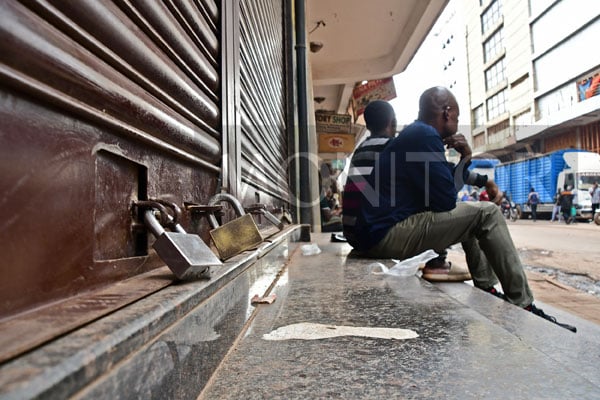Holiday studies: Schools continue to defy directive

Most schools have a tendency of teaching students in candidate classes during holidays despite Education ministry ban. PHOTO BY JOSEPH KIGGUNDU
What you need to know:
- Kyokuhirwe adds that the fee taken from the students for holiday studies is for the day to day running of the programme since the normal school budget closes when the term ends.
In 2007, the Ministry of Education and Sports banned holiday teaching in schools. And though the ban still stands, and in fact some schools have overtime been closed as a result, schools continue to defy and teach during holidays.
Gerald Tumuhirwe, a parent of a Senior Four student who goes to a school in Lukaya Town Council, says he received a call towards the end of the term from one of the school administrators telling him that the Senior Four students will be staying for holiday studies.
“They asked me to pay holiday fees of Shs250,000 for the three weeks the child will be staying at school. I was also told the child will instead come home for only three days prior to the beginning of Term Two,” he says.
Tumuhirwe adds that although he had not budgeted for this money, he had to pay because holiday coaching was a must for all students in candidate classes.
More than meets the eye
As a matter of fact, holiday teaching is not reflected on the school academic calendar, so in most cases, administrators use cunning ways to inform parents about it.
In Rhoda Nalweyiso’s case, she received a text message from the school telling her that her Primary Seven son studying at a School in Kiwenda, Gayaza will be staying at school for holiday studies.
Unlike Tumuhirwe, the school asked Nalweyiso to contribute what they referred to as maintenance fee for the pupils during the holiday. She was told the amount (Shs100,000) was to be paid directly to the designated teacher in charge.
“I went to school to seek clarification and was told that if I default on this amount, I will have to pay double at the beginning of the term. This also caused uproar among the parents who had gathered for the same cause,” she says.
Nalweyiso adds that her son told her teachers asked them to convince their parents to allow them stay back for holiday lessons. “My son said teachers told them pupils who would not make it for holiday lessons would be penalised when the term resumes. He looked terrified so I had to pay fees and leave him at school.”
Justification
According to Martha Kyokuhirwe, a teacher in a secondary school in Entebbe, holiday studies are tailored to have students reflect on what they learn during the term but in a school setting since most of them cannot study when at home. “Very few students can actually revise when at home due to the various distractions.
This is a better way of having them concentrate and focus for better results,” she explains.
Kyokuhirwe adds that the fee taken from the students for holiday studies is for the day to day running of the programme since the normal school budget closes when the term ends.
“The little money we get from the students is for their own benefit. We manage it accordingly to cater for their feeding and paying the different support staff that stay at the premises,” she explains.
But Patrick Serumu, an education consultant with WR Education Consultants, holiday studies are a get-rich scheme teachers use to exploit parents. “We grew up attending coaching at home. I believe teachers can cover all they want during the term than use holiday study as an excuse to extort parents,” he asserts. Serumu says the Education ministry should use an iron hand to deal with the perpetrators.
Sounded warning
State Minister for Primary Education Rosemary Seninde says holiday teaching is wrong, oppressing and exploitative to parents.
“As ministry, we set holidays for children to rest and learn other things at home. They are at school for nine months and only rest for three months in a year. Before schools broke off for the first term holiday, we wrote a circular to all schools in the country, cautioning them on this,” she explains.
Seninde adds that if people are not careful, the country is going to have a high dropout rate of children from school due to the way they are being pumped with work.
Why it persists
• Give students opportunity to reflect on what they learn during the term in a school setting.
• Better way of concentrating and focusing for better results.
• Opportunity for schools to make extra money.
• Schools are under pressure because of stiff competition in schools.
• Help slow learners to catch up with their colleagues.




